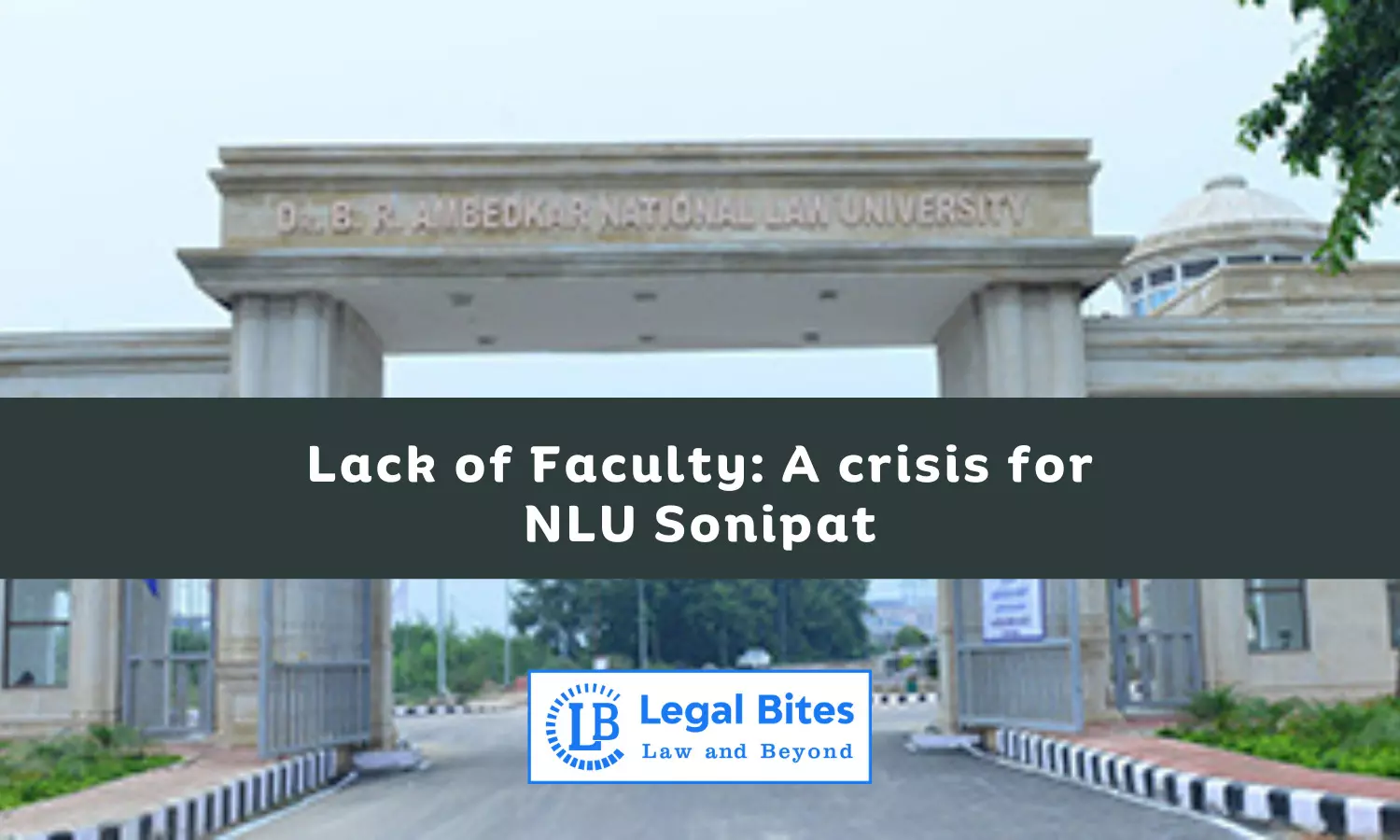Lack of Faculty: A crisis for NLU Sonipat
Academic negligence mainly due to the lack of "Assistant Professor", "Associate Professor" and "Professor" in NLU like DBRANLU is creating huge risk for students in their learning opportunities and career placements.

In the realm of legal education in India, the National Law Universities (NLUs) stand as the vanguards of excellence and innovation. Established to usher in legal education reforms and elevate the standards of legal studies, these institutions have been instrumental in shaping the careers of countless aspiring lawyers. However, when we compare the story of two NLUs – Rajiv Gandhi National University of Law (RGNUL) in Punjab and Dr. B.R. Ambedkar National Law University (DBRANLU) in Sonipat, Haryana – a stark disparity comes to light.
This news piece is based on research conducted by the Center for Policy Research and Legal Initiative (CPRLI), shedding light on the urgent need for reform in the Indian legal education system.
DBRANLU: A University in Distress
DBRANLU, established by the State Government of Haryana in 2012, was envisioned to be a shining beacon of legal education in North India. However, a closer look reveals a different reality. Unlike its counterparts, DBRANLU has not made its mark in the National Institutional Ranking Framework (NIRF) rankings. In the latest 2023 NIRF rankings for law institutes, it is conspicuously absent, a fact that raises eyebrows and concerns.
The lack of "Assistant Professors", "Associate Professors" and "Professors" in DBRANLU is creating a huge risk for students in their learning opportunities and career placements.
One of the critical factors contributing to this disparity is the dearth of teaching faculty at DBRANLU. Astonishingly, not a single permanent faculty member has been appointed at the university. This absence of a qualified and dedicated teaching staff has far-reaching implications, not only for the students but also for the university's research initiatives, projects, and international engagement.
RGNUL: A Beacon of Excellence
In stark contrast, RGNUL in Punjab is taking proactive steps to enhance the quality of education and opportunities for its students. The university is gearing up to host the 2nd International Faculty Development Programme on Law and Social Sciences, in association with Kathmandu Law School, a testament to its commitment to academic excellence and global exposure.
The Urgent Need for Action
The situation at DBRANLU is a cause for concern, and it poses a significant risk to the future of its students. The absence of Assistant Professors, Associate Professors, and Professors undermines the learning opportunities and career prospects of the students. Such academic negligence is simply unacceptable.
To address this pressing issue and safeguard the objectives of NLUs, there is an urgent need for intervention. It is imperative that honourable authorities such as the Prime Minister and the Chief Justice of India take note of this situation. They should consider appointing the Chief Justice of India or the Chief Justices of respective High Courts as chancellors of NLUs, including DBRANLU, to ensure effective oversight.
Furthermore, NLUs should be freed from the constraints of state governments that may not provide adequate funding or support for these institutions. A central statute, harmonizing the operation of NLUs and granting them the status of national institutions with autonomy, is a step in the right direction.
Conclusion
In a country where legal education holds immense importance, NLUs are meant to be pillars of excellence, fostering academic brilliance, social relevance, and professional competence. While some NLUs, like RGNUL, have thrived and excelled, others like DBRANLU are struggling due to a lack of faculty and exposure.
It is high time that the authorities step in to rectify the situation at DBRANLU and ensure that the promise of NLUs is upheld. The future of countless students and the integrity of legal education in India depend on it.

